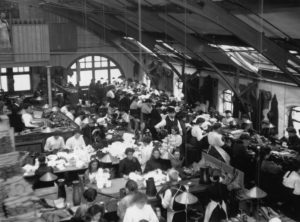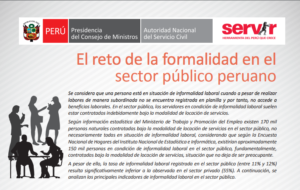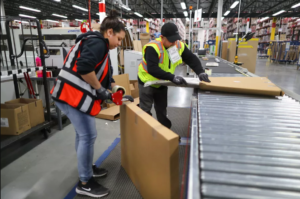Smith and his contemporaries looked across the Atlantic and saw that America appeared to be realizing these hopes — although only for white men. The great majority of the free population in the Revolutionary period was self-employed, as either a yeoman farmer or an independent artisan or merchant.
In the United States, Thomas Paine was the great promoter of this vision. Indeed, his views on political economy sound as if they could have been ripped out of the GOP Freedom Caucus playbook. Paine argued that individuals can solve nearly all of their problems on their own, without state meddling. A good government does nothing more than secure individuals in “peace and safety” in the free pursuit of their occupations, with the lowest possible tax burden. Taxation is theft. People living off government pay are social parasites. Government is the chief cause of poverty. Paine was a lifelong advocate of commerce, free trade, and free markets. He called for hard money and fiscal responsibility.
Paine was the hero of labor radicals for decades after his death in 1809, because they shared his hope that free markets would yield an economy almost entirely composed of small proprietors. An economy of small proprietors offers a plausible model of a free society of equals: each individual personally independent, none taking orders from anyone else, everyone middle class.
Abraham Lincoln built on the vision of Smith and Paine, which helped to shape the two key planks of the Republican Party platform: opposition to the extension of slavery in the territories, and the Homestead Act. Slavery, after all, enabled masters to accumulate vast tracts of land, squeezing out small farmers and forcing them into wage labor. Prohibiting the extension of slavery into the territories and giving away small plots of land to anyone who would work it would realize a society of equals in which no one is ever consigned to wage labor for life. Lincoln, who helped create the political party that now defends the interests of business, never wavered from the proposition that true free labor meant freedom from wage labor.
The Industrial Revolution, however — well underway by Lincoln’s time — ultimately dashed the hopes of joining free markets with independent labor in a society of equals. Smith’s prediction — that economies of scale would be less important than the incentive effects of enabling workers to reap all the fruits of their labor — was defeated by industrial technologies that required massive accumulations of capital. The US, with its access to territories seized from Native Americans, was able to stave off the bankruptcy of self-employed farmers and other small proprietors for far longer than Europe. But industrialization, population growth, the closure of the frontier, and railroad monopolies doomed the sole proprietorship to the margins of the economy, even in North America.
The Industrial Revolution gave employers new powers over workers, but economists failed to adjust their vocabulary — or their analyses
The Smith-Paine-Lincoln libertarian vision was rendered largely irrelevant by industrialization, which created a new model of wage labor, with large companies taking the place of large landowners. Yet strangely, many people persist in using Smith’s and Paine’s rhetoric to describe the world we live in today. We are told that our choice is between free markets and state control — but most adults live their working lives under a third thing entirely: private government. A vision of what egalitarians hoped market society would deliver before the Industrial Revolution — a world without private workplace government, with producers interacting only through markets and the state — has been blindly carried over to the modern economy by libertarians and their pro-business fellow travelers.
There is a condition called hemiagnosia, whose sufferers cannot perceive one half of their bodies. A large class of libertarian-leaning thinkers and politicians, with considerable public following, resemble patients with this condition: They cannot perceive half of the economy — the half that takes place beyond the market, after the employment contract is accepted, where workers are subject to private, arbitrary, unaccountable government.
What can we do about this? Americans are used to complaining about how government regulation restricts our freedom. So we should recognize that such complaints apply, with at least as much force, to private governments of the workplace. For while the punishments employers can impose for disobedience aren’t as severe as those available to the state, the scope of employers’ authority over workers is more sweeping and exacting, its power more arbitrary and unaccountable. Therefore, it is high time we considered remedies for reining in the private government of the workplace similar to those we have long insisted should apply to the state.
Three types of remedy are of special importance. First, recall a key demand the United States made of communist dictatorships during the Cold War: Let dissenters leave. Although workers are formally free to leave their workplace dictatorships, they often pay a steep price. Nearly one-fifth of American workers labor under noncompete clauses. This means they can’t work in the same industry if they quit or are fired.
And it’s not just engineers and other “knowledge economy” workers who are restricted in this way: Even some minimum wage workers are forced to sign noncompetes. Workers who must leave their human capital behind are not truly free to quit. Every state should follow California’s example and ban noncompete clauses from work contracts.
We should clarify the rights that workers possess, and then defend them
Second, consider that if the state imposed surveillance and regulations on us in anything like the way that private employers do, we would rightly protest that our constitutional rights were being violated. American workers have few such rights against their bosses, and the rights they have are very weakly enforced. We should strengthen the constitutional rights that workers have against their employers, and rigorously enforce the ones the law already purports to recognize.

A Manchester clothes mill, 1909. This is not the world Adam Smith envisioned when he championed free markets. Topical Press Agency / Getty
Among the most important of these rights are to freedom of speech and association. This means employers shouldn’t be able to regulate workers’ off-duty speech and association, or informal non-harassing talk during breaks or on duty, if it does not unduly interfere with job performance. Nor should they be able to prevent workers from supporting the candidate of their choice.
Third, we should make the government of the workplace more public (in the sense that political scientists use the term). Workers need a real voice in how they are governed — not just the right to complain without getting fired, but an organized way to insist that their interests have weight in decisions about how work is organized.
One way to do this would be to strengthen the rights of labor unions to organize. Labor unions are a vital tool for checking abusive and exploitative employers. However, due to lax enforcement of laws protecting the right to organize and discuss workplace complaints, many workers are fired for these activities. And many workers shy away from unionization, because they prefer a collaborative to an adversarial relationship to their employer.
Yet even when employers are decent, workers could still use a voice. In many of the rich states of Europe, they already have one, even if they don’t belong to a union. It’s called “co-determination” — a system of joint workplace governance by workers and managers, which automatically applies to firms with more than a few dozen employees. Under co-determination, workers elect representatives to a works council, which participates in decision-making concerning hours, layoffs, plant closures, workplace conditions, and processes. Workers in publicly traded firms also elect some members of the board of directors of the firm.
Against these proposals, libertarian and neoliberal economists theorize that workers somehow suffer from provisions that would secure their dignity, autonomy, and voice at work. That’s because the efficiency of firms would, in theory, drop — along with profits, and therefore wages — if managers did not have maximum control of their workforce. These thinkers insist that employers already compensate workers for any “oppressive” conditions that may exist by offering higher wages. Workers are therefore free to make the trade-off between wages and workplace freedom when they seek a job.
This theory supposes, unrealistically, that entry-level workers already know how well they will be treated when they apply for jobs at different workplaces, and that low-paid workers have ready access to decent working conditions in the first place. It’s telling that the same workers who suffer the worst working conditions also suffer from massive wage theft. One study estimates that employers failed to pay $50 billion in legally mandated wages in one year. Two-thirds of workers in low-wage industries suffered wage theft, costing them nearly 15 percent of their total earnings. This is three times the amount of all other thefts in the United States.
If employers have such contempt for their employees that they steal their wages, how likely is it that they are making it up to them with better working conditions?
It’s also easy to theorize that workers are better off under employer dictatorship, because managers supposedly know best to govern the workplace efficiently. But if efficiency means that workers are forced to pee in their pants, why shouldn’t they have a say in whether such “efficiency” is worthwhile? The long history of American workers’ struggles to get the right to use the bathroom at work — something long enjoyed by our European counterparts — says enough about economists’ stunted notion of efficiency.
Meanwhile, our false rhetoric of workers’ “choice” continues to obscure the ways the state is handing ever more power to workplace dictators. The Trump administration’s Labor Department is working to roll back the Obama administration’s expansion of overtime pay. It is giving a free pass to federal contractors who have violated workplace safety and federal wage and hours laws. It has canceled the paycheck transparency rule, making it harder for women to know when they are being paid less for the same work as men.
Private government is arbitrary, unaccountable government. That’s what most Americans are subject to at work. The history of democracy is the history of turning governance from a private matter into a public one. It has been about making government public — answerable to the interests of citizens and not just the interests of their rulers. It’s time to apply the lessons we have learned from this history to the private government of the workplace. Workers deserve a voice not just on Capitol Hill but in Amazon warehouses, Silicon Valley technology companies, and meat-processing plants as well.
Elizabeth Anderson is the Arthur F. Thurnau Professor and John Dewey Distinguished University Professor of Philosophy and Women’s studies at the University of Michigan. She is the author of Private Government: How Employers Rule Our Lives (and Why We Don’t Talk About It) (Princeton University Press, 2017).
In: vox






